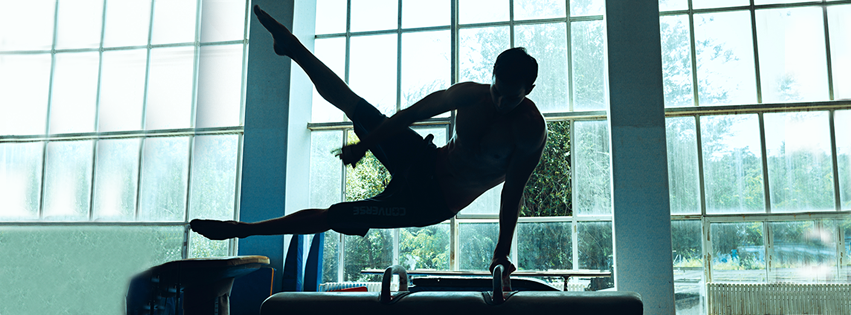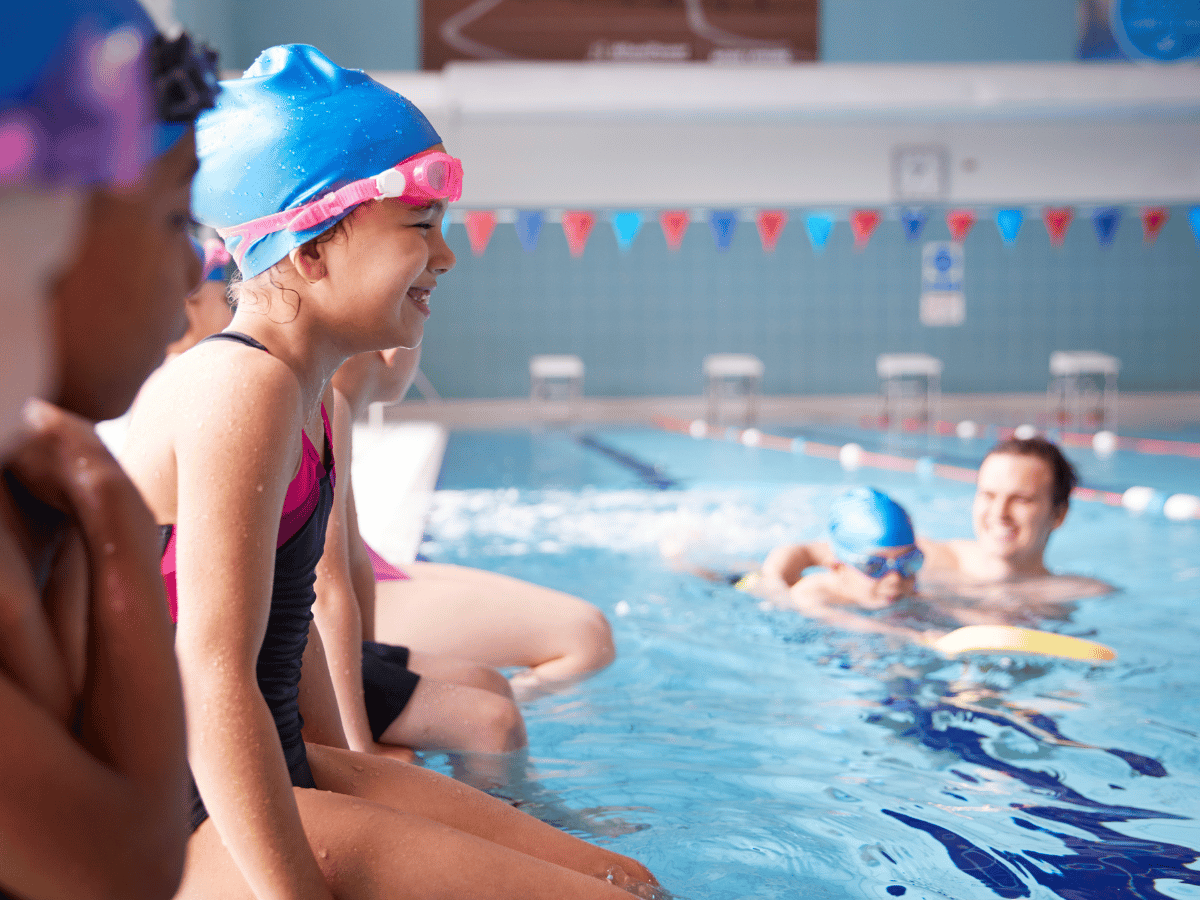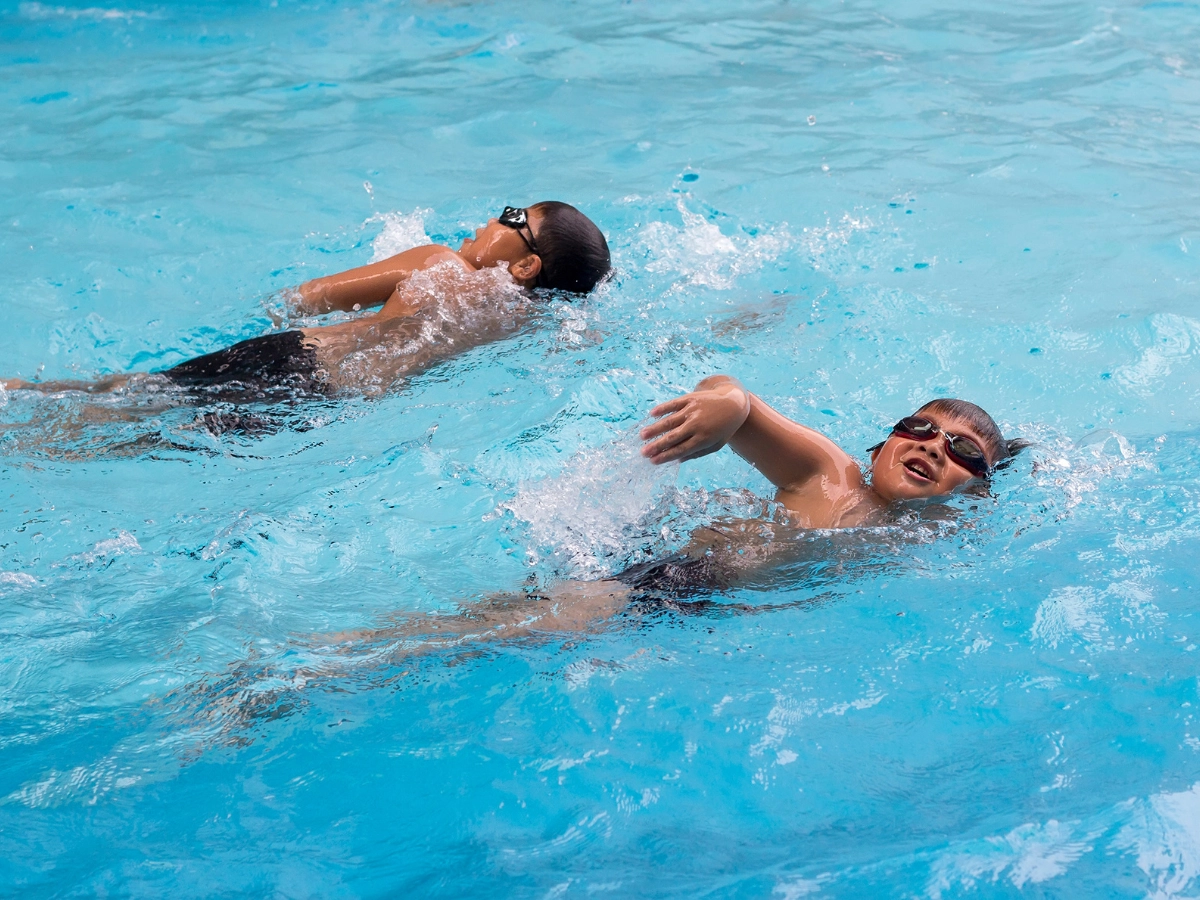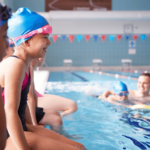There are life skills that gymnasts learn through the daily grind in the gym that will have a positive influence on a life-time of attitudes, reactions and decisions. The daily grind, in fact, helps each gymnast grow as a person as well as a gymnast.
What are they? Test your older gymnasts and see if they can tell you what these life skills are. You may have to first explain to them what a life skill is. If you want to use this with your younger gymnasts, it will be necessary to create a simplified version.
Gymnastics can teach you:
Discipline
This lesson is one of the first ones that gymnasts learn. From day one, a gymnast must have discipline to have success. Young gymnasts will likely miss out on many events outside gymnastics when they are faced with being serious about the sport. There are birthday sleepovers and school functions that will have to be skipped to be in the gym training. It’s simply what the sport requires: it requires the ability to stay focused on your goal and understand what the pay off in the long run will be.
Toughness
Gymnasts most likely will have to endured several injuries throughout their gymnastics career. They must not shy away from the pain, soreness, injury and defeat that they will experience from small injuries, rips, learning new skills and conditioning but push through it so that they develop toughness.
Balance
Balance is important to success with gymnastics (especially on the beam)! Gymnastics, however, teaches girls and boys how to have balance in their lives. Many gymnasts put 20+ hours in at the gym each week. It’s important that they learn balance within their lives so that they can set up their own boundaries and develop balance with school, sleep, recovery and nutrition.
Determination
This skill is a must for gymnasts. When athletes are trying to perfect skills or master challenging ones, as they train, determination is what keeps them focused on reaching their goals. Gymnasts’ determination will also help them face fears, compete fearlessly and keep a positive attitude.
Consistency
Being consistent is a huge part of being a good competitor and a dependable teammate. This is an important component to success in gymnastics as well as in the real world, in a gymnastics career or one that is outside of the sport. Consistency is learned from trying over and over and never giving up. It’s related to determination because you need to be determined to develop consistency. It takes determination, hard work, and training to become a consistent gymnast.
Trust
Trust is a major component of gymnastics for a gymnast and it exists in several areas. A gymnast needs to be able to trust their coach. This coach is responsible for ensuring the safety of the gymnast. If the gymnast cannot trust her coach, then she will not have productive practices and gymnastics then becomes more difficult. A gymnast must be able to trust her teammates. The entire team depends on each other to perform at their best and each team member trusts that her teammates provide support through encouragement during exercises.
And finally, a gymnast must trust himself or herself. They’ve trained to perfect skills and style and must be able to trust that he or she can pull from that training during competition to be the best possible gymnast.
Nutrition
Another very important part of gymnastics training is nutrition, diet and strength. The sport teaches gymnasts the importance of nutrition and a balanced diet to effective training, to quick body recovery and to reaching their potential in competition. Often coaches help with this; however, it’s important for each gymnast to learn this because it is important far beyond the years a gymnast spends in gymnastics. Gymnasts also learn the role that strength and conditioning plays in their training and competing success and in their ability to avoid injuries or recover quickly from them. After all, only a healthy gymnast, who can compete at their potential in a consistent manner, is going to be successful. Hence, building muscles and preventing injury as well as maintaining healthy nutrition are critical to many other important factors of being a gymnast.
Respect
Gymnasts take a step in the learning of what respect is each time they enter the gym. There is the coach-gymnast relationship and the relationships between gymnasts. Respect is earned and learned. Some relationships thrive almost purely from respect as in the case of the coach-gymnast relationship. Gymnasts learn to respect their coaches and that respect hopefully blossoms into trust. And then there are relationships like those between gymnasts that improve with respect as gymnasts learn to respect one another’s opinions and trust the bonds they build. Gymnasts also learn to respect their competitors through a common bond of training, dedication and accomplishment. Knowing how to recognize earned respect and learning how to show respect are life skills that gymnasts will call upon throughout their career and life experiences.
Dedication
Gymnasts must be dedicated to the sport. It’s tough and demanding – and that takes lots of hard work. It requires the gymnasts to learn dedication to stick with the training when it requires that they miss lots of activities and experiences that other kids their age are enjoying. Lots of gymnasts quit because of the dedication it takes. Athletes succeeding at gymnastics have learned well to be dedicated. They are 110% dedicated to the sport and their success.
Patience
Gymnasts learn patience from a very young age. Gymnastics skills take time to learn and to perfect so an athlete must wait as their muscle memory is developed and they mentally can make their bodies execute the skill. Gymnasts must develop patience because this process doesn’t come in a few minutes or even sometimes in a few hours or days. With patience the gymnast will not get angry because the skill doesn’t come immediately.
Friendship
A young child quickly becomes part of a gymnastics team as soon as he or she joins the sport. These kids can train together for more than 10 years throughout their gymnastics careers giving them lots of time to build strong friendships and relationships with each other that can last for their entire lifetime. Gymnasts also have entered a sport that fosters friendships between gymnasts from other clubs, teams and even countries.
Teamwork
Although gymnastics has individual events on a variety of apparatus, it is a sport where athletes learn great teamwork skills. Even as individual competitors on these apparatus, their performance scores combined to create the team effort upon which the competition’s winner rests. Gyms often have groups of gymnasts that train together as a competition team. So the ability to be a strong team member and exhibit teamwork is very important to success in gymnastics.
These skills are not ½ pivot turns, stretch jumps, long hang kips or back extension rolls, but they are skills that make gymnasts successful at consistently executing their gymnastics skills at the highest possible potential.
Gymnastics offers opportunities for development that will stay with athletes forever.
Sources:














